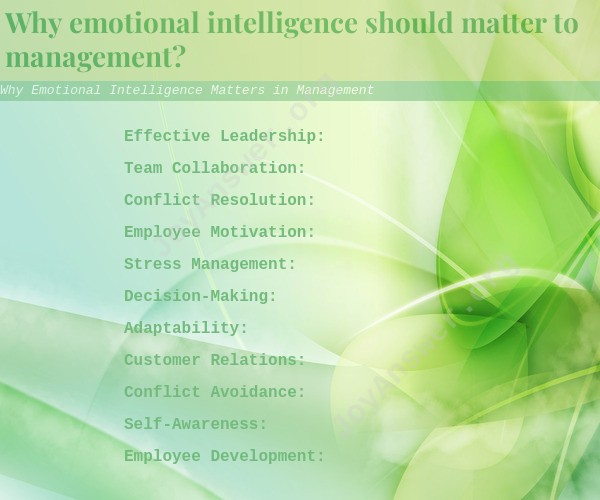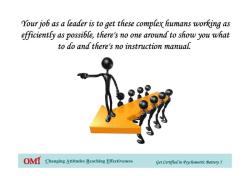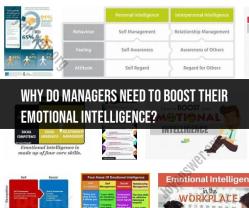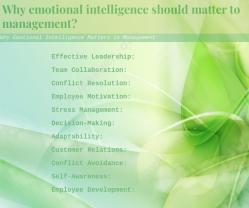Why emotional intelligence should matter to management?
Emotional intelligence (EI) matters significantly in management for several compelling reasons. EI refers to the ability to recognize, understand, manage, and effectively use one's own emotions and the emotions of others. Here's why it's crucial in a management role:
Effective Leadership: Managers with high EI are often more effective leaders. They can empathize with their team members, understand their needs and concerns, and provide support and guidance accordingly. This fosters a positive and productive work environment.
Team Collaboration: High EI managers are skilled at fostering collaboration and teamwork. They can navigate conflicts, encourage open communication, and build trust among team members, leading to improved cooperation and synergy.
Conflict Resolution: Conflict is inevitable in any workplace. Managers with EI can handle conflicts with tact and diplomacy, facilitating resolution and maintaining a harmonious work atmosphere.
Employee Motivation: Managers who understand the emotional needs of their team can better motivate and engage employees. They recognize the importance of recognition, feedback, and creating a sense of purpose, which boosts morale and job satisfaction.
Stress Management: Managing a team or department can be stressful. High EI managers are more adept at managing their own stress levels and helping their team members cope with stress, contributing to overall well-being and productivity.
Decision-Making: EI is valuable in decision-making. Managers with EI can factor in emotional considerations when making decisions, especially those that affect their team. This can lead to decisions that are more compassionate and considerate of the human impact.
Adaptability: The business landscape is dynamic, and adaptability is key. Managers with EI are better equipped to handle change and guide their teams through transitions, reducing resistance and fear.
Customer Relations: In customer-facing roles, EI is crucial for understanding and addressing customer needs, complaints, and emotions. Managers who prioritize EI can enhance customer satisfaction and loyalty.
Conflict Avoidance: High EI managers are often skilled at preventing conflicts from escalating. They can identify potential issues early and take steps to address them before they become significant problems.
Self-Awareness: Self-awareness is a fundamental aspect of EI. Managers who understand their own emotions and triggers can regulate their reactions, make more rational decisions, and model emotional intelligence for their team.
Employee Development: Managers play a key role in the professional development of their team members. EI helps in providing constructive feedback, coaching, and mentoring, which contribute to career growth.
Ethical Leadership: Managers with high EI tend to exhibit ethical leadership. They are less likely to engage in unethical practices and are more transparent and accountable in their actions.
Overall, emotional intelligence is not just a "soft skill" but a critical competency for effective management. It enhances relationships, communication, and decision-making, which, in turn, leads to better team performance, job satisfaction, and organizational success. Managers who prioritize and develop their emotional intelligence can create a more positive and productive work environment for themselves and their teams.







